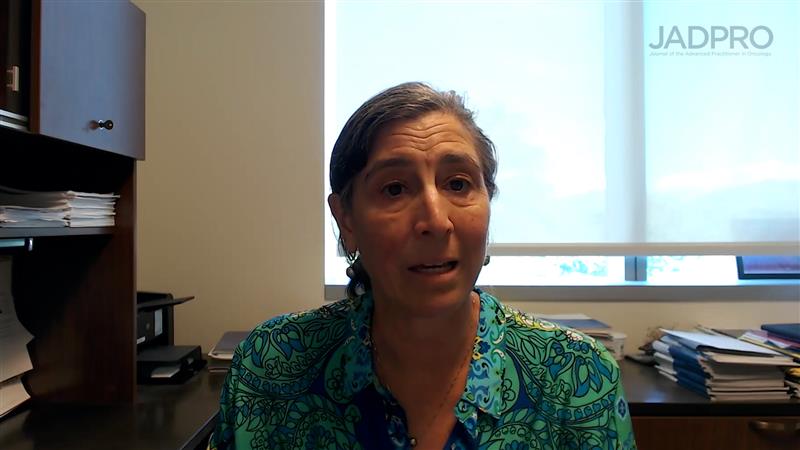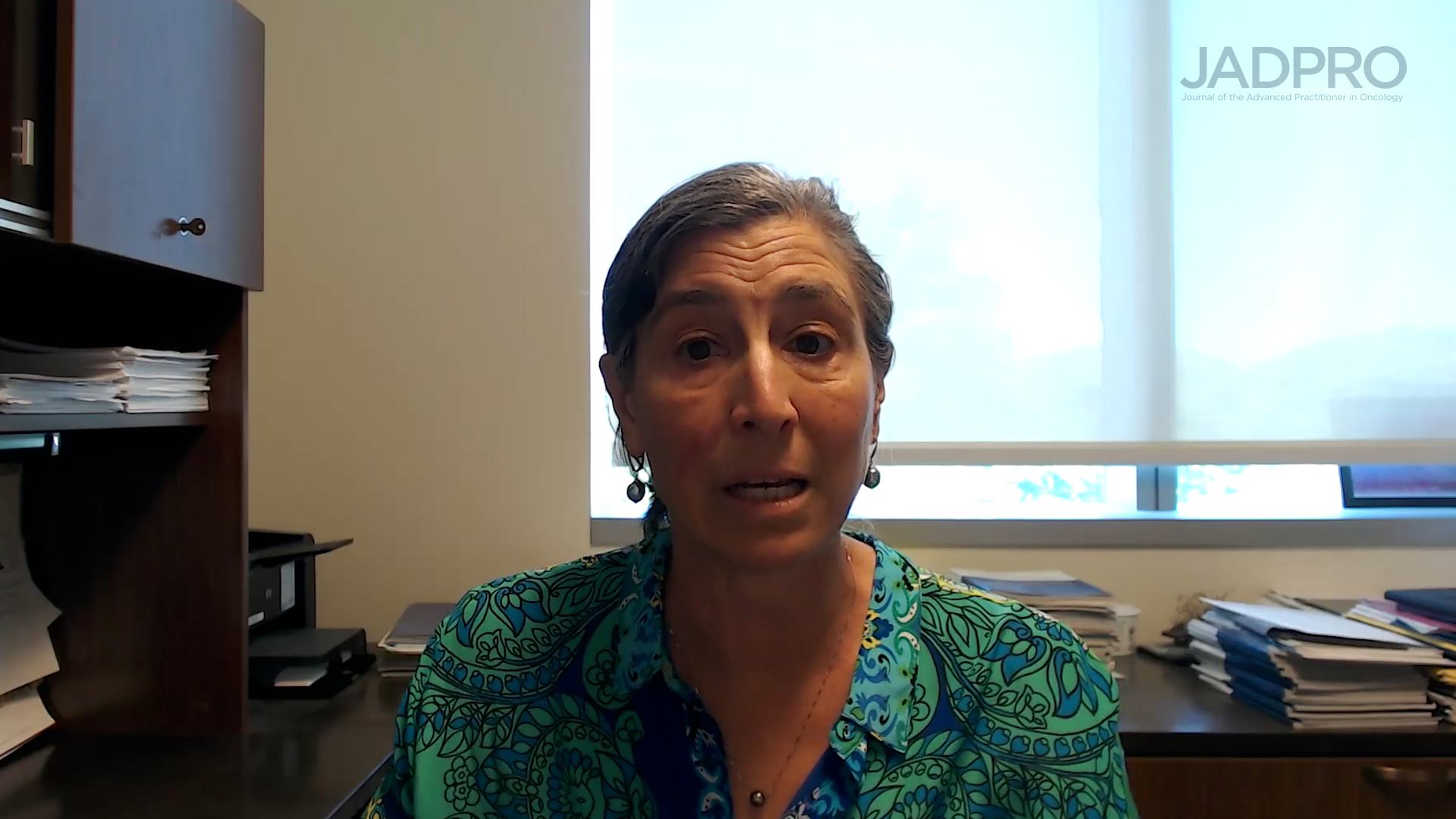Transcript
Aloha. My name is Christa Braun-Inglis. I'm a nurse practitioner and associate researcher at the University of Hawaii Cancer Center. My clinical practice is in breast medical oncology at Hawaii Pacific Health. I'm here today to discuss key takeaways from ASCO Abstract 1087, impact of body weight and composition on survival and toxicities in patients receiving CDK4/6 inhibitors for hormone receptor positive HER-2 negative metastatic breast cancer.
Body composition influences treatment outcomes in adverse events in many oncology patients, including those with metastatic breast cancer. This study looked at body composition and how it impacted survival and toxicities in patients receiving CDK4/6 inhibitors for hormone receptor positive, HER-2 negative metastatic breast cancer. This was a single institution retrospective analysis of 207 patients treated with CDK4/6 inhibitors. The investigators reviewed body composition measures, which included total fat, visceral fat, subcutaneous fat, skeletal muscle and density, and muscular adiposity.
The median age of patients reviewed was 61 years old and 46% of patients were African-American. The majority of patients received palbociclib at a rate of 76%, followed by abemaciclib at 14% and ribociclib at 10%. 36% of patients were classified as obese. 18% were classified to have sarcopenia. And 71% had low muscle quality. Some of the key takeaways I'd like to highlight from this abstract include a higher body mass index, obesity and weight were actually associated with a significantly improved progression free survival. Early changes in skeletal muscle density were also associated with an improved progression free survival.
In addition, grade three, four hematologic toxicities were associated with lower muscle mass. So when we're thinking about patients who have cachexia, lower muscle mass, they have a higher risk of hematologic toxicities. So let's just wrap this up for advanced practitioners. When taking care of patients receiving CDK4/6 inhibitors, advanced practitioners should be aware that patients who are overweight and/or obese may actually tolerate these medications better and actually showed in this study to have an improved progression-free survival as compared to patients who have low muscle volume or sarcopenia.
And I just want to highlight again, the patients with low muscle mass have higher risk of grade three or four hematologic toxicities, and this actually rings true with patients that receive chemotherapy as well. So this same problem seems to be holding up with the patients who receive CDK4/6 inhibitors. So I think it's really important when we're treating these patients, especially our patients that have cachexia, low muscle volume, we are really aware of this potential toxicity.









